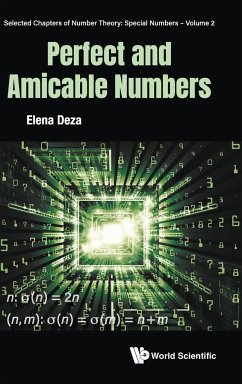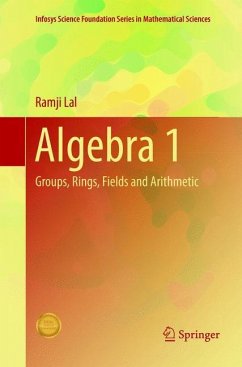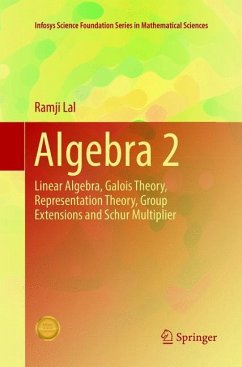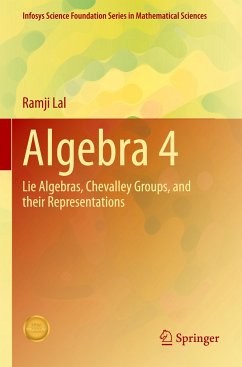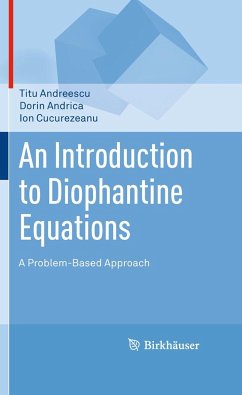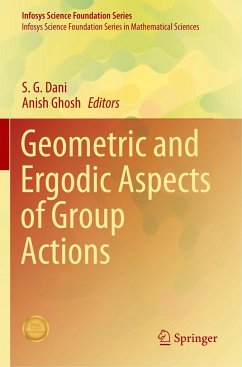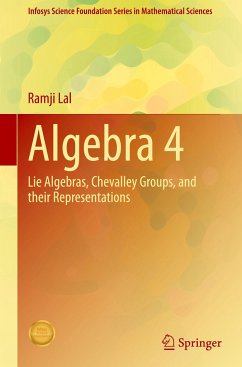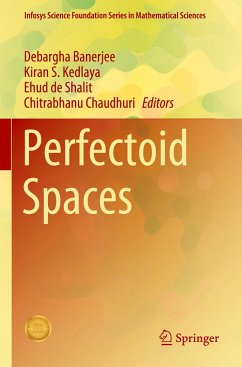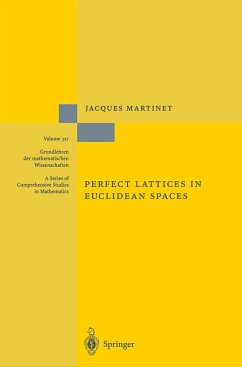
Perfect Powers-An Ode to Erd¿s

PAYBACK Punkte
49 °P sammeln!
The book explores and investigates a long-standing mathematical question whether a product of two or more positive integers in an arithmetic progression can be a square or a higher power. It investigates, more broadly, if a product of two or more positive integers in an arithmetic progression can be a square or a higher power. This seemingly simple question encompasses a wealth of mathematical theory that has intrigued mathematicians for centuries. Notably, Fermat stated that four squares cannot be in arithmetic progression. Euler expanded on this by proving that the product of four terms in a...
The book explores and investigates a long-standing mathematical question whether a product of two or more positive integers in an arithmetic progression can be a square or a higher power. It investigates, more broadly, if a product of two or more positive integers in an arithmetic progression can be a square or a higher power. This seemingly simple question encompasses a wealth of mathematical theory that has intrigued mathematicians for centuries. Notably, Fermat stated that four squares cannot be in arithmetic progression. Euler expanded on this by proving that the product of four terms in an arithmetic progression cannot be a square. In 1724, Goldbach demonstrated that the product of three consecutive positive integers is never square, and Oblath extended this result in 1933 to five consecutive positive integers. The book addresses a conjecture of Erdös involving the corresponding exponential Diophantine equation and discusses various number theory methods used to approacha partial solution to this conjecture.
This book discusses diverse ideas and techniques developed to tackle this intriguing problem. It begins with a discussion of a 1939 result by Erdös and Rigge, who independently proved that the product of two or more consecutive positive integers is never a square. Despite extensive efforts by numerous mathematicians and the application of advanced techniques, Erdös' conjecture remains unsolved. This book compiles many methods and results, providing readers with a comprehensive resource to inspire future research and potential solutions. Beyond presenting proofs of significant theorems, the book illustrates the methodologies and their limitations, offering a deep understanding of the complexities involved in this mathematical challenge.
This book discusses diverse ideas and techniques developed to tackle this intriguing problem. It begins with a discussion of a 1939 result by Erdös and Rigge, who independently proved that the product of two or more consecutive positive integers is never a square. Despite extensive efforts by numerous mathematicians and the application of advanced techniques, Erdös' conjecture remains unsolved. This book compiles many methods and results, providing readers with a comprehensive resource to inspire future research and potential solutions. Beyond presenting proofs of significant theorems, the book illustrates the methodologies and their limitations, offering a deep understanding of the complexities involved in this mathematical challenge.



